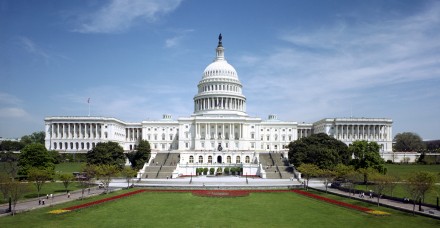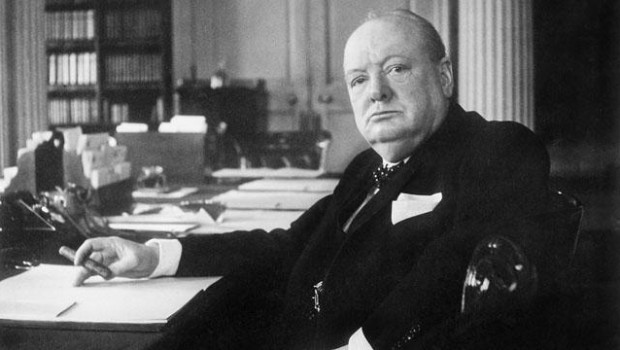Working for the Government after Getting a Master’s Degree
Post Views 1Overview
MBAs and government are not mutually exclusive anymore: The feds are actively looking for graduates with top-notch business skills. Although a position in, say, the Department of Labor might have a lower starting salary than a cushy position at an investment bank, there are plenty of perks like three day weekends and a 9-to-5 schedule to offset the financial discrepancy.
What can an MBA do for Uncle Sam? Plenty including becoming president of the United States, as Harvard B-school alumnus George W. Bush has demonstrated, twice.
Although the federal government employs more than 2.0 million, making it the number-one civilian employer in the world, many MBAs embark on their employment search without ever considering this vast pool of potential positions.
In fact, the current administration has implemented several initiatives to help the government run more like a business. The bureaucracy-heavy, fiscally unsavvy federal behemoth is getting a makeover of sorts. Several years ago, the administration announced the Presidents Management Agenda. The plan includes new and more stringent financial reporting requirements and measures to increase fiscal accountability. It also calls for overhauling the governments recruiting and hiring policies. More than ever, agencies are reaching out to the best and brightest, and the MBA community is one of their prime targets.
Each of the federal governments more than 1,000 different entities has its own mission, and not every agency is an ideal place for an MBA. However, given the administrations push to instill a sense of business discipline in the public sector, the skill sets of MBAs are increasingly in demand.
Major Players
A prime destination for MBAs: the Department of Defense, which employs approximately 15,000 finance and accounting professionals. The Departments of the Treasury, Agriculture, and Veterans Affairs, and the Federal Reserve Board also actively seek individuals with economics and finance backgrounds. Numerous agencies like the Department of Labor, CIA, FBI, and Department of State are also increasing their presence at MBA job fairs. One student reported that several, including the CIA, Department of Transportation, U.S. Agency for International Development (USAID), U.S. Commercial Service, and the U.S. Court of International Trade, all participated in on-campus recruiting at his school.
The types of jobs available to MBAs vary greatly. Contracting the negotiation and management of the governments many procurement contracts is a critical area for which many MBAs are hired. Human resources management, budget analysis, accounting, auditing, and program management are also functions offering opportunities to the B-school graduate.
Trends
- An aging workforce. Fifty percent of the government workforce is eligible for retirement within the next five years. As this anticipated wave begins to take its toll, many senior-level positions are becoming vacan’t more quickly than they can be filled. The current need for leadership inside many government agencies is tremendous.
- An MBA commander-in-chief. As the first B-school graduate in the Oval Office, President Bush has stressed the need for government to be run more like a business. As a result, agencies are increasingly working to institute private-sector discipline. Each year the government doles out a portion of It’s budget to private consulting firms hired to improve processes and leverage best practices used in corporate America. Increasing the level of in-house business expertise will only help in the quest to improve the business of government.
- Scandals in corporate America. The recent wave of high-profile business scandals has prompted the government to increase corporate oversight. This is creating new opportunities for individuals with business training and experience.
- The Presidents Management Agenda. This mandate requires increased accountability for performance in a number of key areas, two of which are financial performance and the strategic management of human capital. This bodes well for MBAs, as the government looks to increase It’s efforts to hire and retain the best people.
- Increased focus on workforce issues. The human resources segment of the Presidents Management Agenda is holding feet to the fire and mandating agencies to dedicate additional resources to workforce planning.
- A focus on diversity. As the country’s demographics change, the profile of the typical American worker is becoming significantly less white and less male. The underlying mission of all government entities is to serve the American public. In order to capitalize on this trend, the government is actively seeking to recruit more women and minorities. Some agencies, including the Department of Justice, National Institutes of Health, and Department of State, have launched formal programs that target these segments of the workforce.
Getting Hired
There’s no guarantee that the agency you are interested in will recruit at your school. On-campus recruiting is a relatively new tool for most government HR departments. While recruiting programs develop, government recruiters may visit only a select number of schools perhaps just those in the Washington, D.C., area.
For information about jobs at agencies that don’t show up on your campus, consult the governments official job website, www.usajobs.gov. It provides information on available positions as well as instructions on how to apply. In addition, visit the site of the specific agency you are interested in. Often an agency’s site will contain information about special internships or management-training programs. For example, the U.S. Postal Service has a highly selective Management Interns Program. Candidates with an MBA or related master’s degree can apply to this two-year training program, which grooms talented individuals for future leadership positions. The government’s official web portal www.firstgov.govcontains an A-Z index of links to all departments and agencies.
Tip: A good source of government jobs can be found at www.GovernmentCrossing.com
Depending on which agency you are applying to, the hiring process can be quite lengthy. Most agencies, for example, will require you to submit to a background check. The CIA, National Security Agency (NSA), and other agencies that deal with classified information typically require every potential employee to obtain a security clearance and submit to a polygraph test.
Competition for employment varies from one agency to another. The CIA, FBI, and State Department can afford to be more selective than other, less glamorous agencies. No matter where you apply, before going in for an interview, do the following:
- Read up on the latest political news and current events.
- Be sure that you understand the mission and goals of the organization.
- Have a clear idea of why you want to work for that specific agency.
- Know how the skills you bring to the table will assist the organization in meeting It’s objectives.
Salary
The General Schedule (GS) is the governments standard system for determining the salaries of It’s employees. About half of all government workers fall within its guidelines. The GS schedule consists of 15 grades, with 10 steps in each grade. Effective January 2005, a government salary can range from $16,016 (GS-1, step 1) to $116,517 (GS-15, step 10). Following GS-15, there are also a number of executive-level positions, whose salaries run on the Senior Executive Service (SES) schedule. SES positions have five levels, with the average salary at $151,266. Some SES members receive even higher wages, such as $157,060 at the Agriculture Department. Under pay rules newly approved by Congress, federal executives can get $165,200 in base pay and no more than $212,000, the vice presidents salary, as a combination of pay and bonuses.
As an MBA, you’ll find that your government salary is most likely lower than those of your counterparts in the private sector. Applicants with graduate degrees, including MBAs, are typically hired at the GS-9 to GS-11 levels, with salaries hovering around $50,000. Not the best fit for the aspiring multimillionaire, perhaps. Keep in mind that President Bush makes only $400,000 a year and Vice President Dick Cheney, $186,300small change to many Wall Street investment bankers. All government salary information is publicly available and may be found on the Internet. Still, government employment offers many perks. What you don’t bring home in your paycheck, you receive in the form of vacation, paid holidays, superior health benefits, flexible work arrangements, and other attractive programs. Some government employers have also started offering recruitment and relocation bonuses and student loan repayment incentives. Congress allows government agencies to offer qualified employees up to $10,000 per year, or a maximum of $60,000, for student-loan repayment.
The government also offers a retirement plan for employees who put in 20 or more years of service. For those born after 1970, the minimum retirement age is 57, after which eligible individuals receive an annuity based on their length of service and highest three consecutive years of salary. Many government employees retire from the public sector and take positions in private consulting where they are very well compensated for their valuable expertise. It’s an opportunity to make a lot of money, essentially pulling in two salaries.
Hours
The government is well known for it’s standard eight-hour workday. Those who take advantage of flextime work nine hours a day in exchange for alternate Fridays off. Says one manager at the Navy, I work 7 am to 4 pm, and I get two three-day weekends a month. He noted that about 50 percent of the employees in his group take advantage of the flextime benefit. A network modeling specialist at the U.S. Postal Service says that her team occasionally works on the weekend; however, she said, this extra effort is appreciated rather than expected, as it is in many private sector jobs. Many government agencies offer employees comp time or overtime pay for working more than the regular 40 hours a week.
Another added benefit: a predictable work schedule. Last-minute projects don’t pop up on a Friday afternoon. In consulting and banking jobs, employees often rearrange personal commitments and vacation schedules to accommodate the whims of their clients, but the government will never keep you from taking your vacation. In the words of a former management consultant who became a government manager: You are not penalized for taking a long weekend to attend your brother’s wedding and you are not expected to bring your laptop to the ceremony.
Tip: A good source of government jobs can be found at www.GovernmentCrossing.com
Working for the Government after Getting a Master’s Degree by Harrison Barnes



 Happy 2010!
Happy 2010!  The Top Inspirational Quotes for Your Career
The Top Inspirational Quotes for Your Career  5 Ways You Can Improve in Your Career
5 Ways You Can Improve in Your Career  Contracting vs Consulting
Contracting vs Consulting  Personal Concierge: The Hottest New Benefit
Personal Concierge: The Hottest New Benefit  How to Accomplish More Even While Sleeping
How to Accomplish More Even While Sleeping  Heartland Announces Creation of New Jobs in Indiana
Heartland Announces Creation of New Jobs in Indiana  How to Quit Your Job with Dignity
How to Quit Your Job with Dignity